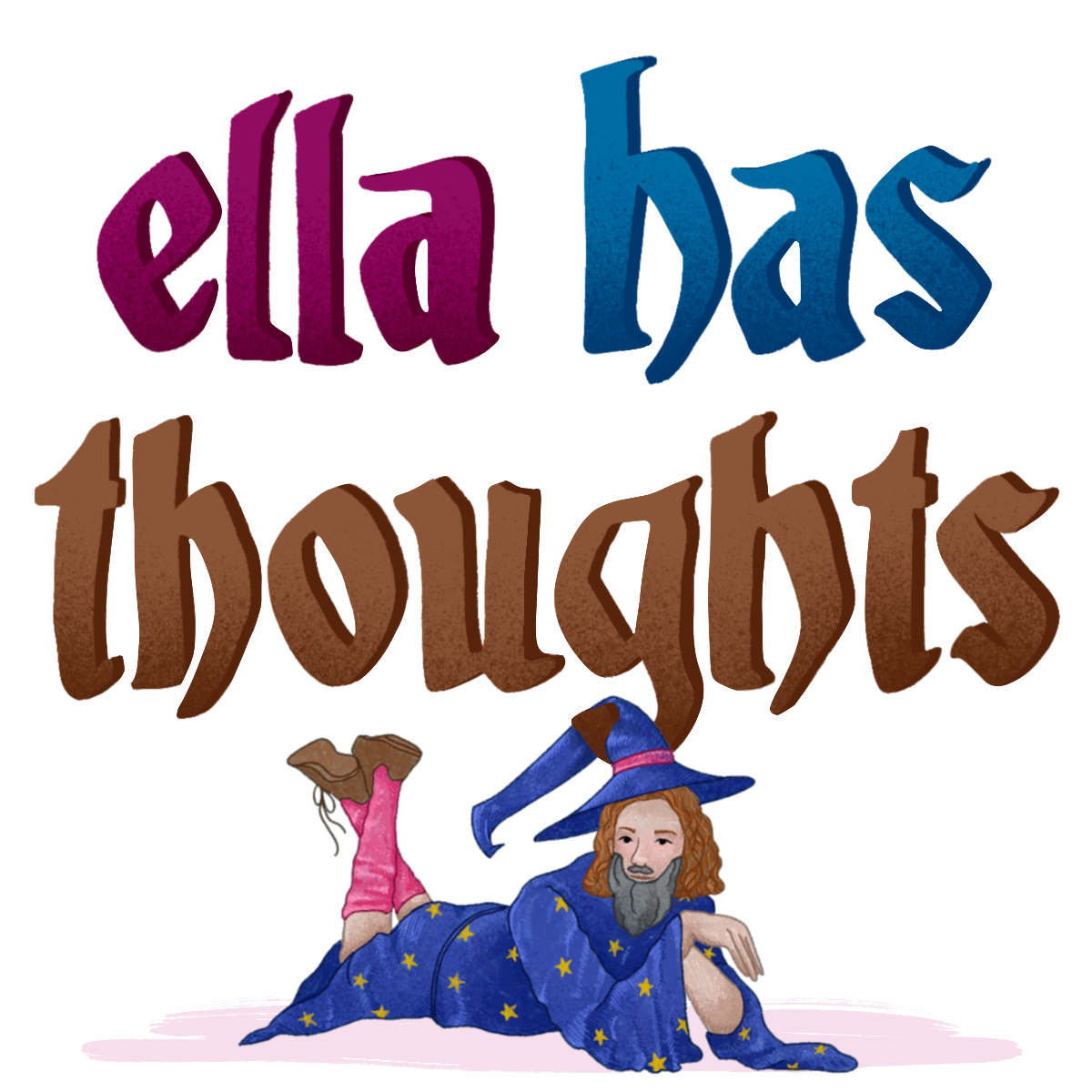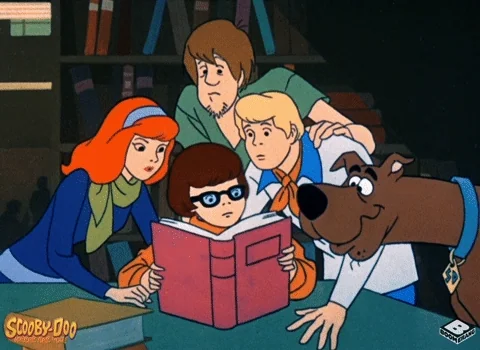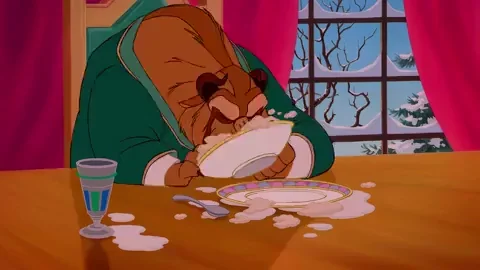You Probably Don’t Actually Think Disability Doesn’t Belong in Fantasy
Hello friends.
Yes, I have had thoughts™ and yes, I have made a generalisation in the title of this substack, but both are probably for good reasons, I promise.
Content warning: ableism, ableist language.
This week I would like to discuss the recurrent discourse that I see pop up online, mostly on twitter dot com because that is where I lurk, but certainly on other platforms too. The topic is, unsurprisingly, about disabled characters/people and “belonging” in fantasy. Only, I’m not going to talk about all the ways we do in fact belong in fantasy, and why I believe it’s ignorant to think otherwise (sorry not sorry), I want to explore why this argument falls apart from its very inception.
One thing I’ve noticed with the people I’ve seen bring up this discourse is that I’m not sure they mean what they’re saying. This likely feels presumptuous, and I thought the same thing when I first had this thought, but stick with me while I Scooby Gang and unmask this mystery (if I may be so bold).
I think when people say some variation of “disabled people don’t belong in fantasy/sci-fi” what they’re really saying is something more along the lines of “disabled people/characters cannot or should not be heroes”.
I say this because sometimes I get very curious about who is saying things and why, where they’re coming from, what’s spinning those internal cogs. Every time without fail, I will discover that they are fans of franchises such as James Bond, a franchise notorious for making their villains disabled or disfigured. They are fans of Shera and the Princess of Power, a show which includes a villain with chronic pain and a “defect” which got him sent away and led to him being stranded on Etheria (Entrapta is canonically autistic, but many don’t realise this, or seem to care, interestingly). They are fans of AVATAR, a movie in which a man who uses a wheelchair becomes a giant alien, which allows him to transcend his disabled body and become able-bodied again. They are fans of Star Wars, in which the main villain Darth Vader is disabled, and in which the main character Luke becomes an amputee. They are fans of The Winter Soldier, who is also an amputee and who has C-PTSD. We are okay with the fairytales which punish heroes by turning them into animals or objects. We are okay with the evil character being named for their disfigurement and only existing within the constraints of that.
I’m going to be using language such as “we” and “us” throughout here, because we are all in community with each other, and I would like to foster that. This essay/think piece is not about shaming, but about exploring an idea. I also want to make it clear that this conversation about disability and storytelling is offered as one small part of a larger collective project of interrogating ableism. I am one voice, human and fallible, and encourage anyone interested in this topic to check out the list of resources I’m including at the end.
It is a tale as old as time. In Mary de Morgan’s 1877 story, ‘Through the Fire,’ for example, is a “cripple” (an outdated, ableist term) named Jack. As a reward for being humble and using his magic wish for the betterment of others, he is rewarded with a belt which renders him “no longer a cripple”. The Grimm Brother’s telling of “Rapunzel” has the princess cure the prince's blindness when her tears drop onto his eyes. Princes are punished with disability, turning into beasts whose teeth and paws make it hard (or impossible) to eat with cutlery. Cinderella’s cruel stepsisters are blinded as punishment when their eyes are pecked out by pigeons. We do not think about the hunch-backed beggar being hunch-backed, the wizard with a walking stick, or the old crone being old.
So it appears to me like we don’t actually think disability doesn’t belong, we just have very limited ideas of what people with disabilities can and should do. It is okay when it is palatable, when it doesn’t feel like disability, when it conforms to what we expect and believe. (This rhetoric also rests on a disabled-non-disabled binary, which is arguably socially constructed and not an accurate understanding of the human experience.)
It seems okay that the villains in James Bond are disabled or disfigured, because disability and disfigured features have long been used to signal evil, immortality, or wrong-doing.
It’s been done so much that it feels natural, not confronting in the same way a disabled hero might be. Scar is named for his scar, and we know he is evil, and that is his identity. I have yet to see the “disabled people don’t belong in fantasy” crowd adding their voices to the disability advocates who emphasise time and time again that villains constantly being disabled is a problem. Granted, if they did, it likely wouldn’t be for the same or the right reasons—but it shows that disability is, in fact, okay. We would be on a similar page, otherwise.
It seems okay that Jake Sully in AVATAR is disabled because disabled people are tragic and, of course, they would or should want to be cured! This has also been done so much that it feels natural, not confronting in the same way a disabled hero might be.
The beast is turned back into a handsome, “normal” prince. I have yet to see the “disabled people don’t belong in fantasy” crowd adding their voices to the disability advocates who emphasise time and time again that the magical cure trope is so prominent as to be a problem, that it perpetuates the misbelief that all disabled people want a cure, or should want a cure, that it presents disability as an inherent obstacle to heroism, and a cure as a reward. Again, if they did, it likely wouldn’t be for the same or the right reasons—but it shows that disability is, in fact, okay.
It seems okay that Darth Vader is disabled because he appears able-bodied, and the mask makes him a scary villain, and oh, the sound of his breathing apparatus is creepy! And it’s okay that Luke has an arm cut off, because he gets it back again and is made functionally able-bodied. You can forget it ever happened.
Erasure of disability is so common, so often used as a down moment or a fixable obstacle, that it feels natural. I have yet to see the “disabled people don’t belong in fantasy” crowd adding their voices to the disability advocates who emphasise time and time again that disabling characters only to cure or fix them is a form of erasure, that the prevalance of disabled villains need to be interrogated.
Granted, if they did—You get it.
It seems okay that Bucky Barnes is an amputee because he has a cool metal arm and he’s badass—and did you know many Marvel fans do not even consider him to be disabled, his prosthetic arm not seen as a prosthesis? His C-PTSD is even treated as a joke in the tv show in which he is a protagonist, steamrolled by an alleged therapist who triggers him with her notebook and doesn’t listen when he becomes uncomfortable.
Disabled people/characters are so often portrayed as needing charity, as evil and sinister, tragic victims, pitiable, objects of violence, the butt of jokes, sexless and undesirable, as being cured. The three most common story types I have observed are 1) disabled character believes disability is sad and awful, and or is unhappy because they are disabled 2) the disabled character is a comedic prop, whose disabilities are used for humour 3) the character strives to overcome their symptoms or their entire disability, and it is this overcoming which “allows” them to be a hero.
When we engage in rhetoric that limits the way disabled people and disability is "allowed" or "welcome" to be represented, where they are "allowed" to show up and what they are "allowed" to do, what we are engaging in is rhetoric that discriminates. We limit storytelling, and we limit it in ways that uphold ableist beliefs.
These “allowable” portrayals of disability and disabled people/characters indulge audiences by conforming to our expectations and assumptions, by affirming our ableist misbeliefs and fantasies. These portrayals and this rhetoric all operate under the same system, called “compulsory able-bodiedness”, which demands disabled people and characters embody a “yes” answer to the unspoken question, “In the end, wouldn't you rather be more like me?” meaning, “wouldn’t you rather be able-bodied?” This, to me, is the foundational misbelief upon which the discourse rests. (Alongside perhaps, a misunderstanding of what “disabled” means).
Some people with disabilities do wish they were able-bodied, and that is okay. Some of us don’t, and that is okay too—our experiences are complex and varied. “Disabled” does not mean incapable, unhealthy, incompetent.
Earlier this week, I saw a tweet in which someone spoke about not letting people play D&D characters who are “wheelchair bound” (a term which is outdated and lacking in understanding; wheelchairs offer independence and movement, and are not prisons) because it is, quote, “some of the stupidest shit I have ever seen”. They then went on to use a blind player portraying an able-bodied character as an example of a good gameplay, their blindness a source of humour when they couldn’t see their dice.
What this says to many disabled people is that when imagining something “fun”, “logical”, “not stupid”, and “allowable”, they cannot reasonably imagine people like themselves.
As with how these “disabled people don’t belong in fantasy” hit tweets usually go, the replies ranged from “this is ableist and exclusionary” to “yeah, disabled people are [insert insult here]” and “I play/watch/read for fun, not to be depressed”, as if disability is inherently something sad. It both surprises me and doesn’t at the same time, whenever this cycle comes back around. The saddest part for me is perhaps the lack of open-mindedness, and the way that able-bodied people seem to judge for us whether we are in fact capable of exisiting or doing xyz activity, even when disabled people speak up.
How different are “disabled people should stay home” and “buildings don’t need to be accessible” and "disabled people shouldn't be in fantasy", in the grand scheme of things? They all seek to erase and render people invisible. They all seek to disallow the presence of disabled people in different spaces for the comfort of non-disabled people. They all impact the ways in which people with disabilities see themselves, impeding the construction of self-identity. Media enables dominant hegemonic assumptions to be reproduced and upheld, and this in turn reproduces and maintains the subordination of people with disabilities. It is a cycle.
Why is it always the disabled individual who must change, be erased, or excluded, and never the world that must change to accommodate them?
Fantasy is full of magic, and sci-fi full of innovative imaginary technology—why is it still that the disabled individual who must change, be erased, or excluded, and never the world that must change to accommodate and enable them? Why is it still that the villain can be disabled or disfigured, and that is only natural? Why is it always that the wheelchair user “cannot” quest unless they be cured, and never that their wheelchair be magicked to withstand the heroic journey?
I think we can bolster and broaden imagination with a little more acceptance and empathy.
What do you think?
If you want to learn more about disability and or storytelling, I recommend:
Disability Visibility: First-Person Stories from the Twenty-first Century
An essay/story collection from different people of diverse backgrounds. These essays are fairly accessible and don’t require you to have prior knowledge of disability theory.
Audiobook available
Disfigured: On Fairy Tales, Disability, and Making Space
This was one of the first books I ever read on disability. It was an eye-opening starting point from which to begin critically thinking about disability in stories, and how those stories perpetuate ideas that forget, erase, and dehumanise disabled people.
Audiobook available
Oakwyrm is a queer, disabled artist from Finland. His videos are super insightful, looking at media through a queer and disabled lens.
Narrative Prosthesis: Disability and the Dependencies of Discourse
Talks about how disability is often used as metaphor or allegory. How disability and disabled people are not included in media for the simple fact that they exist, but to “deepen” narratives, or imply messaging
Disability Representation in Film, TV, and Print Media
An essay collection. Expensive to purchase but is available on Scribd in some countries, or free access through educational institutions may be available.


